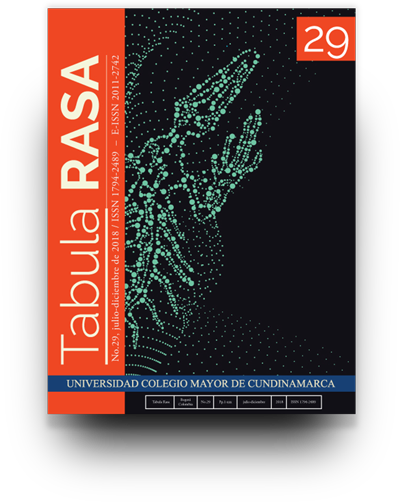Introduction : thinking on the colonial question.
Introducción : pensar lo colonial.
Show authors biography
A few decades after the circulation of Anglo-Saxon post-colonial criticism and the Latin American decolonial turn, the editors of this dossier - gathered at some tables in previous congresses between 2015 and 2017 - ask ourselves: What is colonial in post-colonial studies and in the decolonial turn? In productions of different argumentative tenor we read similar assertions: for postcolonial criticism, the "pos" does not affirm a radical "after" the colony, but rather works as an affirmation under erasure, the prefix as a way of speaking of the brand that the colony imposes on present societies. Certain exponents of the decolonial turn have suggested the need to think about the continuities between colonial order, formation of national states and republican ordinances of the present. However, we consider it necessary to put into discussion that the persistence of the colonial cannot be summarized as a series of unalterable continuities. These continuities have been hidden by the breaking speeches of the Creole elites in the genic moments of the Latin American nation; or suppressed by performative institutions: miscegenation, citizenship, equality, hybridity, republic.
Article visits 255 | PDF visits 141
Downloads
- Adorno, R. (1993). Reconsidering Colonial Discourse for Sixteenth-and Seventeenth- Century Spanish America. Latin American Research Review, 28(3), 135-145.
- Adorno, R. (1988). Nuevas perspectivas en los estudios literarios coloniales hispanoamericanos. Revista de Crítica Literaria Latinoamericana, (28), 11-28.
- Carrera, M. (2003). Imagining Identity in New Spain. Race, Lineage, and the Colonial Body in Portraiture and Casta Paintings. Houston: University of Texas Press.
- Catelli, L. (2012). ¿Por qué estudios coloniales latinoamericanos? Tendencias, perspectivas y desafíos actuales de los estudios coloniales. Cuadernos del CILHA, 13(17), 44-55.
- Catelli, L. (2010). Arqueología del mestizaje: colonialismo y racialización. (Tesis doctoral). Philadelphia: University of Pennsylvania.
- Cornejo Polar, A. (1998). Mestizaje e hibridez. Los riesgos de las metáforas. Apuntes.
- Revista de Crítica Literaria Latinoamericana, 24(47), 7-11.
- Coronil, F. (2008). Elephants in the Americas? Latin American Postcolonial Studies and Global Decolonization. En M. Moraña, E. Dussel y C. Jáuregui (Eds.). Coloniality at large. Latin America and the Postcolonial Debate, (pp. 396-416). Durham: Duke University Press.
- De la Cadena, M. (2007). Formaciones de indianidad: articulaciones raciales, mestizaje y nación en América Latina. Popayán: Envión.
- De Oto, A. & Catelli, L. (2018). Sobre colonialismo interno y subjetividad. Notas para un debate. Tabula Rasa, (28), 229-255.
- Lepe-Carrión, P. (2016). El contrato colonial de Chile. Quito: Abya Yala.
- Martínez, M. E. (2008). Genealogical Fictions: Limpieza de Sangre, Religion, and Gender in Colonial Mexico. Stanford, CA: Stanford University Press.
- Martínez-San Miguel, Y. (2008). From lack to excess. “Minor” Readings of Latin American Colonial Discourse. Cranbury: Bucknell University Press.
- Meléndez, M. (2009). fte Cultural Production of Space in Colonial Latin America. From Visualizing Difference to the Circulation of Knowledge. En B. Warf, B. y S. Arias (Eds.). The Spatial Turn. Interdisciplinary Perspectives, (pp. 173-191). New York: Routledge.
- Mignolo, W. (2000). La colonialidad a lo largo y a lo ancho: el hemisferio occidental en el horizonte colonial de la modernidad. En E. Lander (comp.). La colonialidad del saber: eurocentrismo y ciencias sociales. Perspectivas latinoamericanas, (pp. 34-53). Buenos Aires: Clacso.
- Mignolo, W. (1993). Colonial and Postcolonial Discourse: Cultural Critique of Academic Colonialism? Latin American Research Review, 28(3), 120-134.
- Mignolo, W. (1986). La lengua, la letra y el territorio (o la crisis de los estudios literarios coloniales). Dispositio/n: American Journal of Cultural Histories and Theories, (28-29), 137-60.
- Nemser, D. (2017). Infrastructures of Race. Concentration and Biopolitics in Colonial Mexico. Houston: University of Texas Press.
- Rivera Cusicanqui, S. (2010). Violencias (re)encubiertas en Bolivia. La Paz: Piedra Rota.
- Rufer, M. (2017). La raza como efecto estructural de conquista: una hipótesis de trabajo. En R. Parrini, Y. Arce y E. Alcántara (Eds.). Lo complejo y lo transparente. Investigación transdisciplinar en ciencias sociales, (pp. 101-127). México: UAM.
- Rufer, M. (2010). La temporalidad como política. Nación, formas de pasado y perspectivas poscoloniales. Memoria y sociedad, 14(28), 11-31.
- Seed, P. (1991). Colonial and Postcolonial Discourse. Latin American Research Review, 26(3),181-200.
- Segato, R. (2007). La nación y sus otros. Raza, etnicidad y diversidad religiosa en tiempos de políticas de identidad. Buenos Aires: Prometeo.
- Verdesio, G. (2012). Colonialismo acá y allá: Reflexiones sobre la teoría y la práctica de los estudios coloniales a través de fronteras culturales. Cuadernos del CILHA, 13(17), 175-191.








